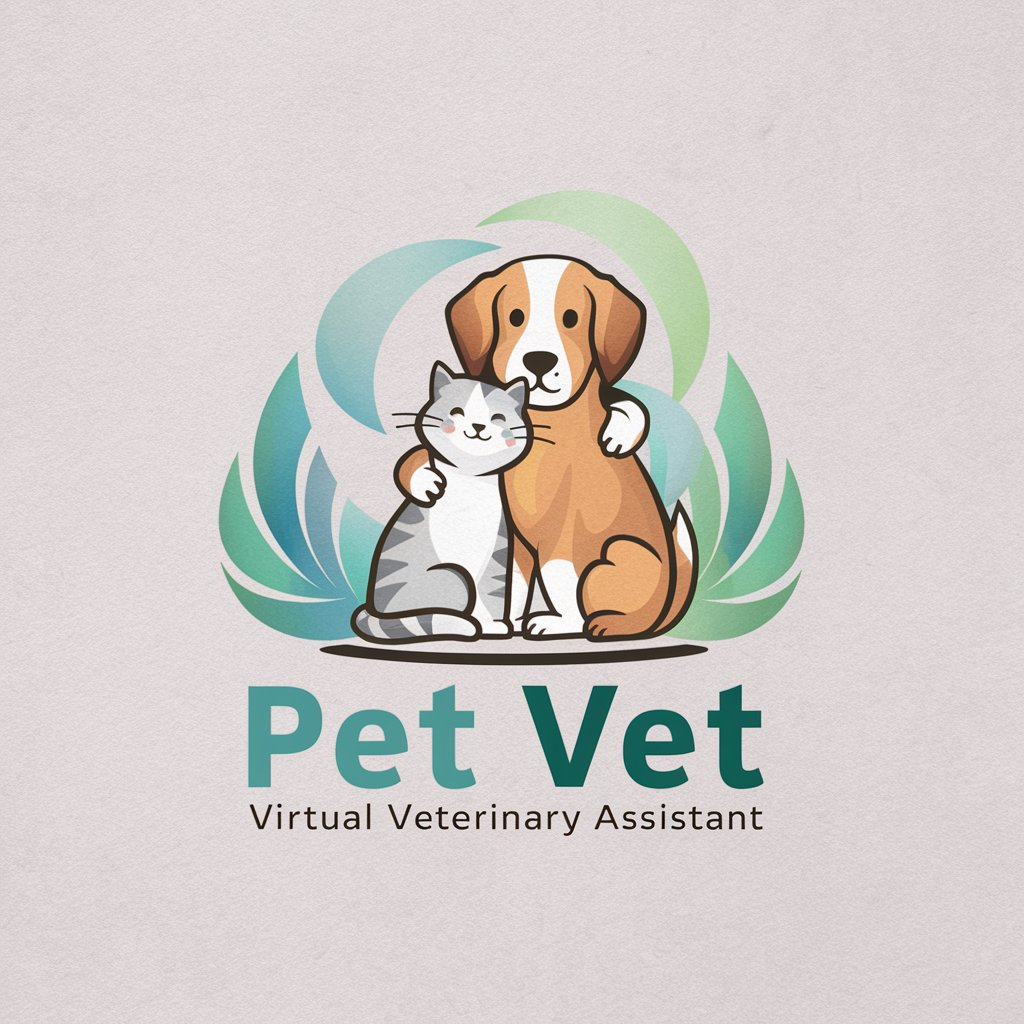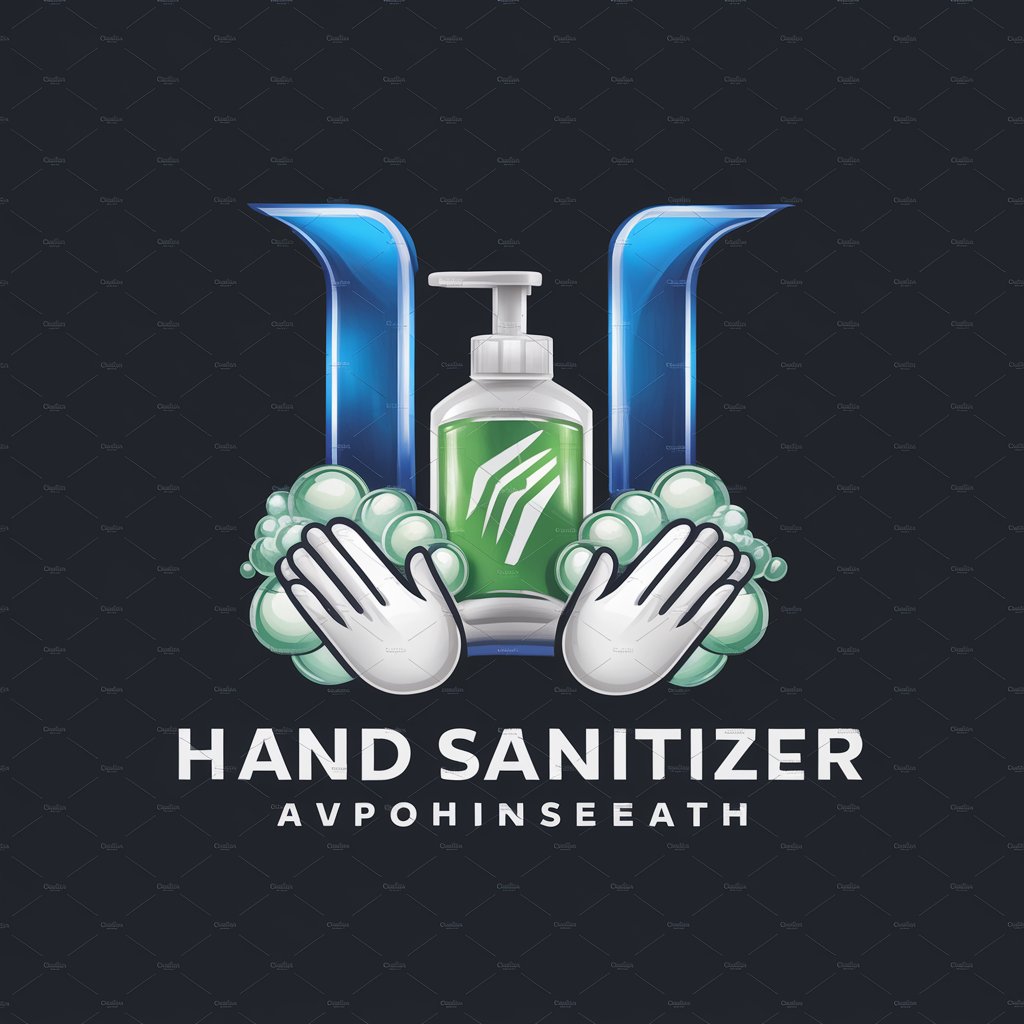
Veterinarian - Virtual Vet Assistant

Hello! How can I assist with your pet's health today?
AI-powered Pet Health Advice
Describe your pet's symptoms and behaviors.
What type of diet does your pet follow?
How often do you exercise your pet?
When was the last veterinary check-up for your pet?
Get Embed Code
Introduction to Veterinarian
Veterinarian, also known as Pet Vet, is a virtual assistant designed to provide pet owners and animal caregivers with reliable, accessible, and comprehensive information on pet health and well-being. It is equipped to offer advice on a wide range of topics, including but not limited to, preventive healthcare, nutrition, behavior, and common medical issues for a variety of animals such as dogs, cats, horses, and more. The core purpose of Veterinarian is to bridge the gap between pet owners and professional veterinary care by providing initial guidance, helping users understand when to seek professional help, and offering tips for day-to-day pet care. An example scenario illustrating its use could be a dog owner noticing unusual symptoms in their pet, such as lethargy or loss of appetite. Veterinarian would offer initial advice on possible causes and recommend monitoring the pet's symptoms closely, advising on when to consult a licensed veterinarian if the condition persists or worsens. Powered by ChatGPT-4o。

Main Functions of Veterinarian
Healthcare Guidance
Example
Providing advice on common health issues like allergies or skin conditions.
Scenario
A cat owner finds their pet excessively scratching. Veterinarian suggests possible allergens, recommends a diet review, and advises on when to seek a vet if symptoms persist.
Nutritional Advice
Example
Offering recommendations for dietary needs specific to the pet's age, size, and health conditions.
Scenario
A horse owner is unsure about the nutritional needs of their aging horse. Veterinarian provides guidance on adjusting the diet to support joint health and maintain an ideal weight.
Behavioral Tips
Example
Sharing strategies to address common behavioral issues, like separation anxiety or aggression.
Scenario
A dog exhibits signs of separation anxiety. Veterinarian suggests routine establishment, anxiety-reducing toys, and when to consider professional behavioral training.
Emergency Care Information
Example
Identifying signs that require immediate veterinary attention and how to provide first aid until professional help is available.
Scenario
A pet owner notices their pet ingested something potentially toxic. Veterinarian advises on signs of poisoning to watch for and instructs on immediate steps to take while heading to the vet.
Ideal Users of Veterinarian Services
Pet Owners
Individuals owning or caring for pets, seeking reliable information on health, nutrition, and behavior. They benefit from Veterinarian by receiving immediate advice, helping them make informed decisions about their pet's care.
New Pet Adopters
First-time pet owners or those adopting a new pet, who may lack experience in pet care. Veterinarian provides them with essential information to start their journey on the right foot, covering basics of care, vaccinations, and adapting to their new companion.
Animal Care Professionals
Veterinary technicians, pet sitters, and shelter workers who require a quick reference or second opinion on pet health-related queries. While not a replacement for veterinary advice, Veterinarian can support their work with additional information and care tips.

How to Use Veterinarian
1
Start by visiting yeschat.ai for a complimentary trial, no ChatGPT Plus required or account creation necessary.
2
Type your pet health-related question in the chat interface to receive instant veterinary advice.
3
Provide specific details about your pet (age, breed, symptoms) to get more tailored advice.
4
Use the advice provided as a preliminary guide and not as a substitute for professional veterinary care.
5
For ongoing issues or emergencies, contact a local veterinarian as recommended by the tool.
Try other advanced and practical GPTs
Sanitizer
Empower Your Cleanliness with AI

Mystic Palm Guide
Unlock the secrets of your palm with AI

MediConsult
Empowering Health Decisions with AI

Syncwire Social Media Content Creator
Crafting Your Social Voice with AI

Hand Gun
Unlocking the world of handguns with AI-powered precision.

Hand Sanitizer
Clean hands, anywhere, anytime.

Contract Buddy
AI-Powered Contract Review and Negotiation Assistant

Cleaning Advisor
AI-Powered Cleaning Expertise

Baby Star Assistant
Empowering BabyStar with AI Expertise

G Ads Expert
Streamline Your Ads with AI-Powered Precision

Simplicity Bot (Test)
Simplify complexity with AI-powered introspection.

Matt Iklodi AI Content Marketing Genius
Elevate Your Brand with AI-Powered Content Marketing

Veterinarian Q&A
Can Veterinarian diagnose my pet’s condition?
While Veterinarian can provide preliminary advice based on symptoms, it cannot replace a physical examination by a licensed veterinarian. Always consult a professional for a definitive diagnosis.
How accurate is the advice provided by Veterinarian?
The advice is based on a vast database of veterinary knowledge, but individual cases may vary. It's best used as a guide alongside professional veterinary advice.
Can Veterinarian provide emergency medical advice?
Veterinarian can offer first-aid suggestions, but in the case of an emergency, you should immediately contact a local veterinary emergency service.
Does Veterinarian offer advice for all types of pets?
Yes, Veterinarian offers advice for a wide range of pets, including dogs, cats, horses, and more exotic animals. However, the depth of information may vary.
How can I get the most out of Veterinarian?
Provide detailed information about your pet’s issue, including symptoms, duration, and any relevant history for the most accurate advice. Use the tool regularly for ongoing pet health management.





